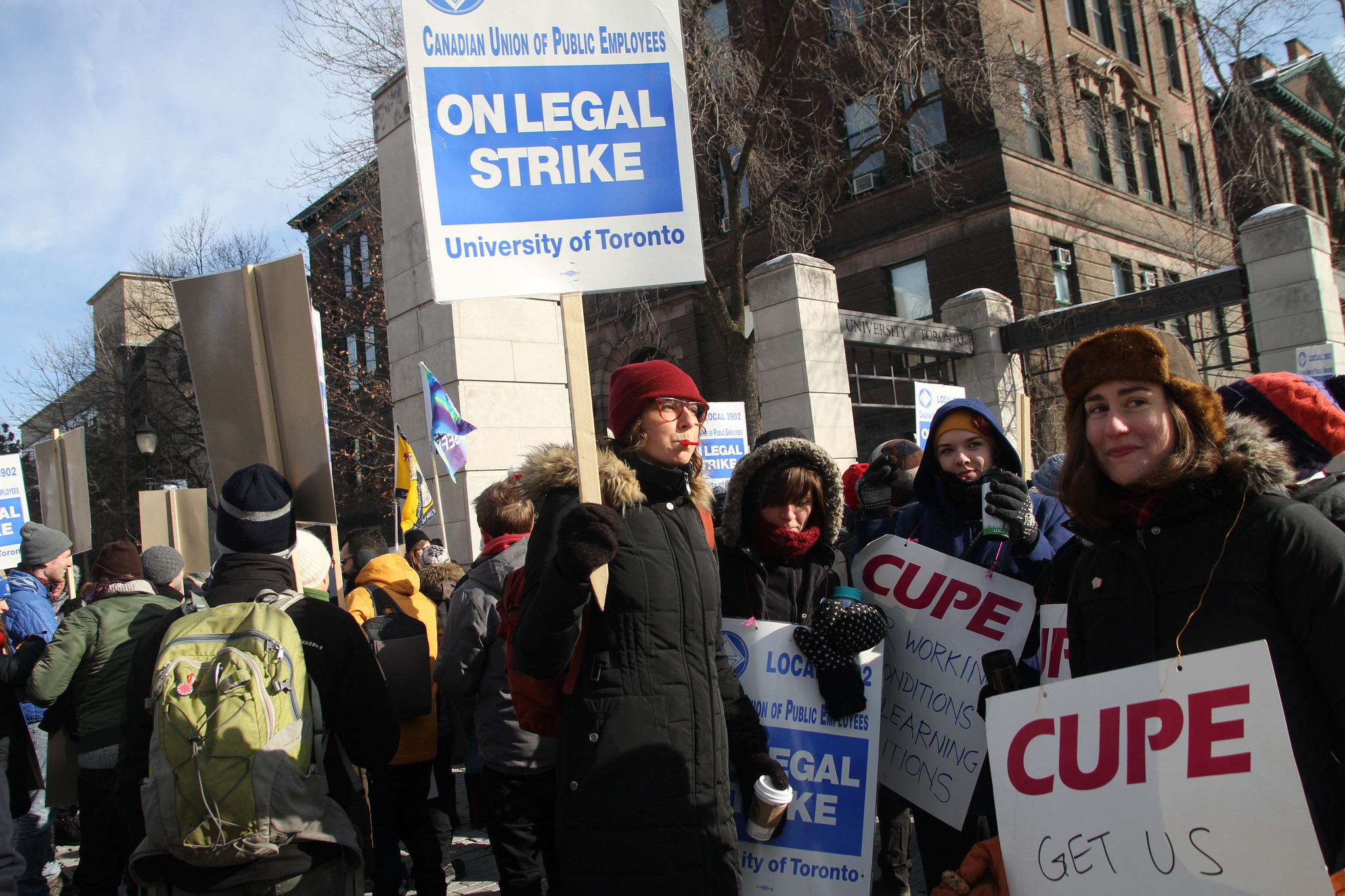Nearly nine months after the end of a 13-week strike at the Peel Children’s Aid Society in Ontario, the union that represents its workers says the workplace still needs healing.
Workers were on strike for 90 days last fall, from September to December. None thought they’d be picketing that long, said Sonia Yung, president of CUPE 4914, which represents more than 400 front-line service workers at the society. “It was pretty contentious,” she said of those three months. Management would arrive in buses, refusing to make eye contact with the striking workers, she said.
The union and the CAS agreed to a new contract in January, after workers had returned to the job. Workers returned unified, she said, but the employer has done little to build relationships with them. The return was “quite negative,” she said. New procedures for things like signing in or signing out felt like a “punishment” at times, she said.
Workers don’t talk about the strike too much beyond reminiscing, she said. “Healing is something that people intentionally participate in and collaborate on,” said Yung. Right now, she said, it seems things are too busy for that to happen.
Even workers who return to more receptive environments find adjusting can take a while. “There’s a scar,” said Laura Kaminker, president of CUPE local 1989. It represents library workers in Mississauga who were off the job for three weeks last summer. The strike was a “peak” experience for workers in terms of solidarity. But a year later, management still hesitates to speak about it openly. It’s almost talked about in code, she said.
An often-ignored truth about strikes is simply this: The hardest job begins when the work resumes — restoring workplace relationships.
Strikes are about respect more than they are about money, said Bob Cook, who organized several during his time as a staff representative at the Ontario Public Service Employees’ Union (OPSEU). Feelings of disrespect have likely been festering long before a strike is called.
“You’re working and you’re not appreciated. I know people say your paycheque is your form of appreciation, but it’s the respect you don’t get in the workplace (that causes a strike),” he said.
When a strike finally starts, defying the employer and withholding services can seem exciting. But it’s stressful and tiring: picketing becomes long; finances might be tight. Tempers flare. Some workers cross the picket lines, or find new jobs altogether.
Complicated emotions — feelings of suspicion, distrust, disrespect and loss of control — contribute to strikes, and they need to be recognized as workers return. If the workplace had a suspicious, negative culture before the strike, it likely will continue once the strike ends, said Paula Allen, vice-president of research and integrative solutions at human resources consulting company Morneau Shepell. Healing doesn’t happen automatically, and, like any kind of recovery, things will be sensitive at the beginning. Everyone needs to be careful about how they talk about the strike, and focus the discussion on issues, like job roles, not personal conflicts. Once it becomes personal, “long-standing hostilities” can form, she said.
Both employees and management are impacted by strikes, said Glenn French, president of the Canadian Initiative on Workplace Violence. He’s worked with organizations across the country after strikes end. Companies and unions need to prepare for returning to work before the strike begins, he said. Striking workers have endured tiring picket lines and financial stresses caused by reduced pay. Managers have sometimes been working longer hours or taking on unfamiliar jobs to make sure work continues. They may receive bonuses, but the allure of that can fade as personal and family stress build, said French.
Employers need to talk about strikes clearly and concisely, and avoid jargon. But they need to remember they’re working with people, said French. Managers should personally welcome employees when they return to work. Regular activities that build company culture need to continue. Everyone needs to know what supports are available to them. People need time to readjust, so it’s probably not wise to introduce new policies or procedures shortly after workers return, he said.
There’s no standard length of time for how long it takes a workplace to heal.
“It takes a long time,” said French, who said he’s seen some workplaces never fully recover. Allen said some use the skills they’ve learned after workers return and apply to them to many areas. In that way, the workplaces become stronger.
Many tout the solidarity strikes produce. Employees who work at different locations spend days side-by-side. Community members bring food. Members of other locals travel to show their solidarity. But workers can turn on each other, too. There’s no way to avoid the resentment people feel towards those who crossed the picket lines, said French. The union needs to talk about potential problems between union and non-union workers. “It’s silly to hold this kind of grudge,” he said.
Grudges have power. Bob Cook has seen workers carry them for decades. During the mid-’90s, he was helping service a jail during a province-wide strike. A retired worker walked up to him and asked if there were scab workers. When Cook said no, the man pulled a list of names from his pocket — scabs from a strike that had happened at the same jail in the ’60s.
“In some cases, people never forgive,” said Cook, noting that he would find forgiveness hard, too.
Forgiveness may be best, but it doesn’t always happen. Allen said employees need to remind themselves why they do their jobs, and what made them return to work. If they can’t move past the hurt, it might be best to go elsewhere.
“You can always get another job,” she said, “but you can’t get a new life.”
Meagan Gillmore is rabble.ca‘s labour reporter.
Like this article? Please chip in to keep stories like these coming.





